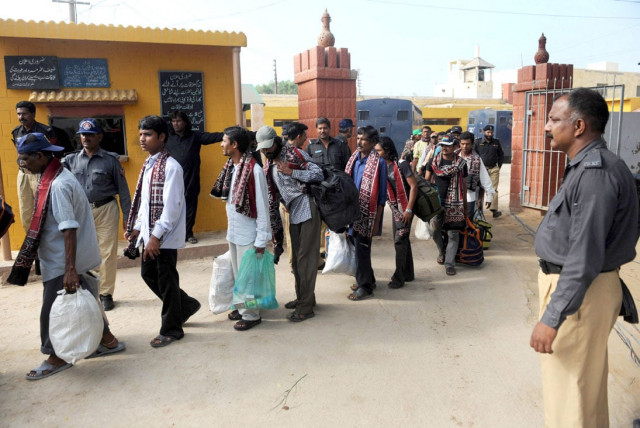Worthy proposals
In past years, the red-tapism in Pakistan and India held up the release of fishermen prisoners for months or years.

Worthy proposals
Being held abroad, with no access to family for years and often in a hostile environment, can only add to the punishment endured by these individuals — some of whom are guilty of no crime other than misjudging where the border lies. In past years, the red-tapism for which Pakistan and India are well-known has held up their release for months or years. In some cases, only intervention by human rights agencies has enabled them to return and their plight to be taken note of.
The recommendations of the committee are to be welcomed. There is no need for so much human suffering. The visit by the committee to jails in all major cities and the provision of consular access to some in need of advice also indicates how much there is to gain at the human level by improving relations between India and Pakistan. Many gains can be made, as has happened in the case of the prisoners. We now also need formal mechanisms to deal with cases of juveniles and those guilty only of petty crimes. The progress made is encouraging. Let us hope it can be built upon to make things even better in the future and end the unnecessary suffering inflicted on various categories of people as a result of the strained ties between the two nations which share a great deal in common.
Published in The Express Tribune, April 25th, 2011.













COMMENTS
Comments are moderated and generally will be posted if they are on-topic and not abusive.
For more information, please see our Comments FAQ